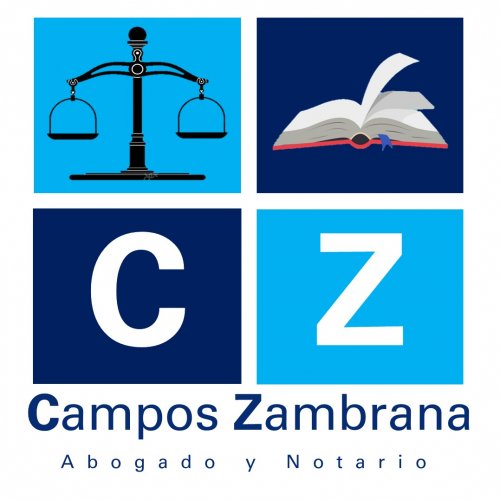Best Probate Lawyers in Nicaragua
Share your needs with us, get contacted by law firms.
Free. Takes 2 min.
Or refine your search by selecting a city:
List of the best lawyers in Nicaragua
About Probate Law in Nicaragua
Probate law in Nicaragua governs the legal process that takes place after a person passes away. It involves the distribution of the deceased person's assets to the rightful heirs and beneficiaries as well as the payment of debts and taxes from the estate. The process ensures that the decedent's last will and testament is honored and any disputes regarding inheritance are resolved according to the family law statutes in Nicaragua.
Why You May Need a Lawyer
Individuals may seek legal assistance in probate for various reasons. These can include understanding and navigating the legal process of estate distribution, ensuring that the deceased's last wishes are accurately executed, and dealing with any disputes that may arise among heirs. Additionally, if the estate involves complex assets, significant debts, or international elements, hiring a lawyer can help manage these complexities and ensure compliance with local laws.
Local Laws Overview
Nicaraguan probate law operates under the Civil Code, which outlines the legal proceedings for inheritance and property distribution. Key aspects involve the requirement to formally recognize heirs, appoint executors who manage the estate, and potentially conduct a judicial inventory of the deceased's assets. Understanding these elements is crucial for a smooth probate process. Note that if there is no will, the estate will be distributed according to intestacy laws, which prioritize the deceased's closest relatives.
Frequently Asked Questions
What is probate?
Probate is the legal process of administering the estate of a deceased person, resolving all claims, and distributing the deceased person's property under the will.
How long does the probate process take in Nicaragua?
The duration of the probate process can vary greatly based on the complexity of the estate, the presence of a will, and whether disputes arise. The process can take several months to a few years.
Is it necessary to go through probate if there is a will?
Yes, even if there is a will, the probate process is necessary to legally recognize the distribution of the estate and settle any debts or taxes.
Can probate be avoided?
In some cases, probate can be bypassed through specific estate planning tools such as joint ownership or designated beneficiaries, but these need to be arranged before the individual's death.
What if there is no will?
If there is no will, the estate will be distributed according to the intestacy laws of Nicaragua, which prioritize relatives like spouses and children.
Who is responsible for managing the probate process?
The executor named in the will is responsible. If there is no appointed executor, the court may nominate an administrator.
What are the duties of an executor?
The executor handles the management of the estate, which includes identifying and valuing assets, paying debts and taxes, and distributing the remaining estate according to the will or law.
What are the costs associated with probate?
Costs can include court fees, legal fees, and administrative costs involved in managing the estate and resolving disputes.
Can creditors make claims against the estate?
Yes, creditors have the right to make claims against the estate to recover debts owed by the deceased. These claims typically must be made within a specified time frame.
What happens if there is a dispute among heirs?
If disputes arise, the matter may be resolved through mediation or litigation in court, where a judge will make a determination based on the evidence presented.
Additional Resources
For individuals needing assistance with probate matters, several local resources can provide guidance. The Supreme Court of Nicaragua offers information on legal procedures, and there are private probate attorneys who specialize in this area. Additionally, community legal aid organizations may offer free or low-cost services for those who qualify.
Next Steps
If you are facing probate in Nicaragua, consider the following steps: Document all known assets and liabilities of the deceased, review any will or estate plans available, and consult with a qualified probate attorney to understand your position and responsibilities. Preparing early will help streamline the process and mitigate any potential legal challenges.
Lawzana helps you find the best lawyers and law firms in Nicaragua through a curated and pre-screened list of qualified legal professionals. Our platform offers rankings and detailed profiles of attorneys and law firms, allowing you to compare based on practice areas, including Probate, experience, and client feedback.
Each profile includes a description of the firm's areas of practice, client reviews, team members and partners, year of establishment, spoken languages, office locations, contact information, social media presence, and any published articles or resources. Most firms on our platform speak English and are experienced in both local and international legal matters.
Get a quote from top-rated law firms in Nicaragua — quickly, securely, and without unnecessary hassle.
Disclaimer:
The information provided on this page is for general informational purposes only and does not constitute legal advice. While we strive to ensure the accuracy and relevance of the content, legal information may change over time, and interpretations of the law can vary. You should always consult with a qualified legal professional for advice specific to your situation.
We disclaim all liability for actions taken or not taken based on the content of this page. If you believe any information is incorrect or outdated, please contact us, and we will review and update it where appropriate.
Browse probate law firms by city in Nicaragua
Refine your search by selecting a city.








